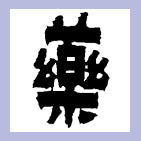Traditional Chinese Medicine (TCM) Approach to Stroke: Theoretical Research, Therapeutic Methods, and Recommended Medications
I. Theoretical Research on Stroke in TCM
Etiology and Pathogenesis:
TCM attributes stroke to Qi and blood disharmony and Yin-Yang imbalance, often triggered by pathogenic factors such as wind, fire, phlegm, blood stasis, and deficiency. Modern research, exemplified by Chen Lukui’s team, highlights the PI3K/AKT signaling pathway as a key mechanism in TCM stroke treatment. Regulating this pathway reduces neuronal damage and apoptosis, as demonstrated in preclinical studies.
Syndrome Differentiation:
Stroke is classified into two categories:
- Zhong Jingluo (中经络): Affecting the channels and collaterals, with milder symptoms.
- Zang Fu (中脏腑): Involving internal organs, often severe.
Subtypes include:
- Gan Yang Bao Kang (肝阳暴亢): Sudden liver-yang hyperactivity.
- Feng Tan Zu Luo (风痰阻络): Wind-phlegm obstructing collaterals.
- Tan Re Fu Shi (痰热腑实): Phlegm-heat accumulating in the intestines.
- Qi Xu Xue Yu (气虚血瘀): Qi deficiency and blood stasis.
- Yin Xu Feng Dong (阴虚风动): Yin deficiency with internal wind.
Treatment requires tailored formulas based on syndrome differentiation.
II. Therapeutic Methods in TCM
1. Herbal Medicine:
-
Bu Yang Huan Wu Tang (补阳还五汤):
- Indication: Qi deficiency and blood stasis (post-stroke hemiplegia, facial droop).
- Mechanism: Tonifies Qi, activates blood, and resolves stasis.
-
Zhen Gan Xi Feng Tang (镇肝熄风汤):
- Indication: Yin deficiency with liver-yang rising (dizziness, tinnitus).
- Mechanism: Subdues liver-yang and nourishes Yin.
-
Xing Luo Cheng Qi Tang (星蒌承气汤):
- Indication: Phlegm-heat accumulating in the intestines (constipation, abdominal distension).
- Mechanism: Resolves phlegm and purges heat.
2. Acupuncture:
- Key Points: Scalp acupuncture (e.g., Baihui [GV20], Fengchi [GB20]) and limb points (e.g., Quchi [LI11], Zusanli [ST36]).
- Mechanism: Regulates Qi-blood circulation and promotes neural plasticity.
- Modern Integration: Combined with rehabilitation training enhances motor recovery (e.g., Yu Zhishun’s "scalp penetration needling").
3. Tuina (Therapeutic Massage):
- Techniques: Yi Zhi Chan (rolling) and Mo Fa (rubbing) to stimulate acupoints.
- Timing: Early intervention (24–72 hours post-stroke) improves circulation and prevents muscle atrophy.
III. Recommended TCM Medications for Stroke (10 Formulas)
-
Bu Yang Huan Wu Tang (补阳还五汤)
- Ingredients: Huang Qi (Astragalus membranaceus), Dang Gui (Angelica sinensis), Chuan Xiong (Ligusticum chuanxiong), Di Long (Pheretima), Hong Hua (Carthamus tinctorius), Tao Ren (Prunus persica).
- Efficacy: Tonifies Qi, activates blood, and resolves stasis.
- Indication: Qi deficiency and blood stasis (hemiplegia, numbness).
- Dosage: Decoct in water, 1 dose daily, divided into 2 servings.
- Caution: Avoid in Yin deficiency with fire.
-
Zhen Gan Xi Feng Tang (镇肝熄风汤)
- Ingredients: Niu Xi (Achyranthes bidentata), Sheng Long Gu (Dragon Bone), Sheng Mu Li (Oyster Shell), Bai Shao (Paeonia lactiflora).
- Efficacy: Subdues liver-yang and nourishes Yin.
- Indication: Yin deficiency with liver-yang rising (dizziness, limb numbness).
- Dosage: Decoct in water, 1 dose daily.
- Caution: Avoid in spleen-stomach deficiency.
-
Xing Luo Cheng Qi Tang (星蒌承气汤)
- Ingredients: Quan Gua Lou (Trichosanthes kirilowii), Dan Nan Xing (Arisaema erubescens), Sheng Da Huang (Rheum officinale).
- Efficacy: Resolves phlegm, purges heat, and unblocks bowels.
- Indication: Phlegm-heat accumulating in the intestines (constipation, sticky tongue coating).
- Dosage: Decoct in water, 1 dose daily.
- Caution: Avoid in pregnancy or weakness.
-
An Gong Niu Huang Wan (安宫牛黄丸)
- Ingredients: Niu Huang (Calculus Bovis), She Xiang (Moschus), Zhu Sha (Cinnabar), Huang Lian (Coptis chinensis).
- Efficacy: Clears heat, resuscitates, and opens orifices.
- Indication: Stroke coma, fever, and convulsions.
- Dosage: 1 pill daily.
-
Caution: Avoid in pregnancy or prolonged use (contains mercury).

- Su He Xiang Wan (苏合香丸)
- Xue Shuan Tong Jiao Nang (血栓通胶囊)
- Hua Tuo Zai Zao Wan (华佗再造丸)
-
Da Huo Luo Wan (大活络丸)
- Ingredients: Qi She (Zaocys dhumnades), Wu Shao She (Gloydius brevicaudus), Wei Ling Xian (Clematis chinensis).
- Efficacy: Dispels wind, resolves phlegm, and relaxes tendons.
- Indication: Paralysis due to wind-phlegm (joint stiffness, low back pain).
- Dosage: 1 pill, 1–2 times daily.
-
Caution: Avoid in pregnancy.

-
Fu Fang Di Long Jiao Nang (复方地龙胶囊)
- Ingredients: Di Long (Pheretima), Chuan Xiong (Ligusticum chuanxiong), Huang Qi (Astragalus membranaceus).
- Efficacy: Activates blood and tonifies Qi.
- Indication: Ischemic stroke recovery (facial droop, hemiplegia).
- Dosage: 2–4 capsules, 3 times daily.
- Caution: Avoid in bleeding disorders.
-
Deng Zhan Hua Su Pian (灯盏花素片)
- Ingredients: Deng Zhan Hua Su (Erigeron breviscapus extract).
- Efficacy: Activates blood and alleviates pain.
- Indication: Stroke sequelae, angina.
- Dosage: 2 tablets, 3 times daily.
- Caution: Rare skin reactions (discontinue if occur).
IV. Conclusion
TCM provides a holistic approach to stroke management, combining herbal formulas, acupuncture, and Tuina to address underlying imbalances and symptoms. The recommended medications, rooted in classical principles and validated by modern research, offer safe and effective options for acute and chronic stroke care. Integration with conventional therapies and guidance from TCM practitioners are essential for optimal outcomes.



